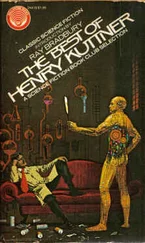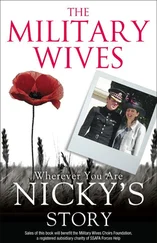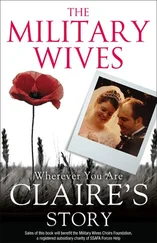Henry discovered the dogs beneath a thicket of broadleaf puka, flies and beetles feasting on the head wounds. “My boy’s pets,” he said, incredulous. “Who’d do such a thing?” Bell stalked off, disgusted. Henry stared, attempting to make sense of the grisly mess. These were John’s harmless pups, pleasant, obedient animals, bound for the circus. His eyes burned. He craved sleep; he wished not to think anymore.
Bell called to him from below, waving an arm. Henry started down, his heart thundering with fear of finding a dead child. He came up on Bell, his breathing fast and shallow.
Bell held a white-tipped, black tail feather. “Huia,” he said. “They wear the filthy things in their topknots.” He pointed out the horse tracks leading down to the river, the droppings. “Goddamn Maori were here. I’d stake my last farthing on it.”
Henry had heard stories about long-ago murders and snatchings. He’d chalked them up to apocryphal pub tales at the time. There’d been problems back in the sixties, blood shed on both sides over land, but nothing lately, not since he’d arrived, not that he knew or even heard of. What would provoke them? Why his house and family? “I’m going after them,” he said.
“I’m going with you,” said Bell.
“We’ll need guns and rope,” said Henry, wide awake now, full of seething energy. “I’ll take a coat if you can spare it.”
They raced back to Bell’s for supplies. Henry was barely aware of the horse beneath him. He did not see what caused the animal to rear. He lost hold of the reins and fell back, striking the road hard, his leg audibly cracking. A dusty blur of hooves rose in his vision. Henry tucked his head and flung himself right, rolling down an embankment, his eyes filling with searing juices.
Bell came rushing, trampling leaves and twigs. “Close yer damn eye.” Henry couldn’t see him, but he could smell the man’s peculiarly olid flesh. “Close it, I said. Don’t try to use it.” A dry cloth was pressed to his right eye. “Yer damn leg’s broken. I can see the bloody bone. We’ll get you straight to hospital. Can you hear me, Oades? Put an arm about my neck. That’s it. I’ve got you. Gently does it. That’s a steady lad. Here we go then. On the count of three. One. Two. Here we go.”
A fiery bolt shot up his spine. Henry screamed and slipped into black oblivion.
THE DOCTOR SAID he was lucky. The leg was broken in three places, but both it and the eye had been saved. The doctor was a pale, walleyed man with cold hands. “You’ll walk eventually,” he said, “though it shan’t be anytime soon.”
The eye dressing would come off in two or three weeks, depending. Depending on what, the doctor did not say. Henry, in a laudanum fog, did not ask.
Bell’s note was read aloud to him. Dear Friend, it started. I’m off to see the governor. I haven’t a Chinaman’s chance on my own. Pray for us. Henry had a rambling, fevered chat with the Lord, and then slept straight through four days. “A near coma,” said the doctor. Henry brought a hand to his bandaged cheek and touched his shaved chin. He’d been bearded since twenty. He spent a drugged moment worrying that Meg and the children wouldn’t recognize him, then closed his good eye and slept another three days.
He woke asking for his wife, his children, Cyril Bell. The aide on duty told him he was better off resting now.
All the staff cajoled. “‘Tis always darkest before the dawn,” said the Irish nurse with Meg’s blue-gray eyes. She came on duty early and was the kindest of the lot. “We’ve a lovely porridge this morning, Mr. Oades. You’ll do your poor children no favors by starving.”
He asked, “Have you any news today?” The nurse took advantage of his open mouth and shoveled in the tepid, mealy paste. It came straight back up, along with his own sour bile.
“I’m not hungry just now,” he said, embarrassed.
She clucked and mopped his gown with a rag. “I’m praying for you,” she said.
Most gave up on him fairly quickly and went on to the next bed. The ward was full. The overflow suffered outside in the hall. The groaning and sobbing never ceased. Henry closed his eye, letting the din wash over and through his ineffectual self.
On Sunday he begged the homely missionary woman who came around to read Scripture, “Please, will you find Mr. Bell?” She promised she would. He, in turn, endured her biblical gush, feigning comfort. He did not see her again.
Mr. Freylock, Henry’s immediate supervisor, came the following week. He entered the ward with his hat in his hands, his mouth twitching with sympathy. “They tell me you’re not eating,” he said.
Mr. Freylock was a career man, one of the first of the distillery men to arrive in New Zealand. “The place suits me,” he’d once said. Henry recalled feeling both vaguely envious and disdainful of a man who found true contentment behind a desk.
He looked up at Mr. Freylock, his good eye filling. The eye wept constantly. He’d been given drops, but they did little good. A brown spider ran along the windowsill. He dabbed at the eye with a corner of sheet, thinking how spiders frightened Josephine.
Mr. Freylock touched Henry’s sleeve. “You’ve had an abysmal time of it.”
Henry cleared his throat. “Is there any news, sir?”
“Only that the scouting trip was unsuccessful.” Mr. Freylock fiddled with his felt brim. “Six men went out, myself included. The governor sent out four more. We rode together for a day and then split from them, thinking we’d cover more ground that way. I’m sorry, Henry.”
“My family could be anywhere then?” Henry’s dry lips cracked with speech. “Anyone might have them?”
“If you mean white men, no, not likely. The arson, you see, the snatching itself. It smacks of utu. ”
“I beg your pardon?”
Mr. Freylock sighed. “It is the heathen’s word for revenge. The governor believes your family was taken in retaliation for last month’s flogging. The whipping would have brought dishonor to the entire bloody tribe. Utu of some sort was inevitable. I sincerely loathe being the one to tell you.”
The Maori lad had been no more than fifteen. Henry had walked away before the lashing even began, repulsed by the gawking onlookers. “I assume another search is under way, sir?”
Mr. Freylock shook his head. “Not at present, I’m sorry to say.”
“Why not?”
“Simply put, Henry, it would do no good. The trail went cold scant miles out. We were but a handful of family men against a sodding band of savages. Sorry to say it. The odds weigh too heavily.”
“And the governor’s men?”
“They’ve since returned empty-handed as well. That is not to say you should relinquish hope. That is not to say you shouldn’t continue to pray. All of Wellington is praying for your wife and children.”
Henry’s eye ran, salting his stinging lips.
“Ah, Henry. I’m only adding to your distress.”
Henry pleaded, “Will you help locate Cyril Bell?”
Mr. Freylock took out his watch and flicked open the lid with a thumbnail. “Poor fellow had a bit of a breakdown, smashed a good bottle at McFadden’s, started a brawl. They locked him up for his own well-being.”
“When will he be released?”
Mr. Freylock glanced down at his watch. “Sooner rather than later, I’m sure.”
“Will you ask him to come round?”
“I shall, Henry. First chance. I must be off. I’m sorry the news isn’t better. Your post is being held indefinitely, if it’s any small consolation. That’s what I came to tell you.”
Henry struggled to remain civil, to issue his senior a proper farewell, but all before him had eclipsed. As if a cupboard door had just been nailed shut, and he’d found himself inside.
Читать дальше












